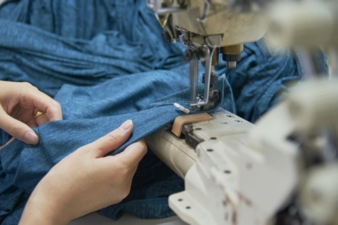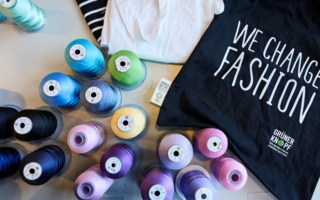27/01/2022 – ITC Partnership with IAF
Boost exports of garment manufacturers
ITC and IAF signed a Memorandum of Understanding to support associations of garment manufacturers as well as garment apparel manufacturing companies in addressing emerging challenges related to competitiveness.
In addition, the cooperation will support these institutions in understanding the governance structure of the global apparel value chain and industrial relations between brands and retailers and supplying garment manufacturers.
International Apparel Federation (IAF) will advise garment manufacturers on rules of origin requirements, address new buyer requirements in markets, reduce the environmental footprint of garment manufacturing and empower women’s work along the supply chain. The International Trade Centre (ITC) and IAF will co-create trainings in this regard.
Support with digitalization
Digitalization will also play an essential role in this agreement. Amid the pandemic, digitalization has become a crucial topic for the textile and clothing industry: brands, retailers and larger suppliers are expected to modernize their production and adapt to the latest trends. Therefore, ITC plans several activities to address digitalization for GTEX/MENATEX partners and how to engage in a more collaborative relationship with brands and retailers using digital technologies.
Matthias Knappe, head of the Fibres, Textiles and Clothing Unit at the International Trade Centre, says: “The garment sector is an ever-changing industry that requires companies to closely follow global trends and requirements to be internationally competitive and continuously export. ITC wants to ensure that its partners and beneficiary companies in developing countries have the best support to meet the environmental and human rights requirements of global buyers.”
This initiative is implemented under the International Trade Centre’s Global Textiles and Clothing Programme (GTEX) in North Africa, Middle East (MENATEX), Central Asia and Madagascar.
Background
The Covid-19 pandemic has drastically accelerated changes in the textile and clothing sector – more than ever, companies are expected to demonstrate a rigorous level of corporate responsibility and commitment. Due diligence regulations related to environmental, social, and human rights in the United States and the European Union, for example, urge companies to have a high degree of verification throughout the supply chain to be able to export to these markets.




